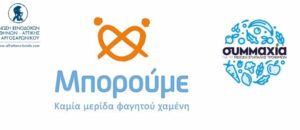“Shaping the Tourism Product of Continental Greece”

I feel proud to be here today to inaugurate together the first regional congress of the Panhellenic Federation of Hoteliers. A conference that aims to bring the POX closer to its Associations and at the same time to bring hoteliers closer to the state. To exchange views and through meaningful dialogue to highlight the issues that concern us. To try to find common solutions and how to implement them.
Tourism has always played a key role in the country’s development. Today this role is enhanced, due to the significant increase in the contribution of tourism to GDP. Our country is budgeting for growth of 2% above the European average. Growth which is mainly based on the tertiary sector. Our sector. Therefore, the success of the Greek hotelier, today more than ever, is a national issue. The Greek hotelier contributes more than 10 billion to the gross domestic product and employs more than 200,000 workers based on the latest study of the Greek Hotel Association.
However, while the success of our industry is non-negotiable, the exclusive reference to record revenues and arrivals does not reflect the true picture of individual regions. And this is exactly why we chose to hold our first conference in the heart! of mainland Greece. It is clear that Karpenisi today does not resemble the images of Christmas. This is the reality of thousands of businesses that rely on less than 90 days of dynamic operation to cover 365 days of operating expenses. Nevertheless, these areas have excellent potential for development and enrichment of the Greek tourist experience. However, proper planning is needed and for this, cooperation between the private and public sectors is essential.

In the Panhellenic Federation of Hoteliers we try to highlight the prospects of the hotel industry. To inform and educate the state, the local government and the Greek society on the specific issues. We make targeted interventions in relation to the need to improve the existing legislative framework (such as recently on the DMMO legislation) while highlighting serious weaknesses in the industry.
And speaking of serious weaknesses, one of the main obstacles to the qualitative upgrading of the Greek tourism product is the long-standing absence – the long-standing absence – of support for hotels up to 3 stars with a capacity of more than 200,000 rooms. Quality and sustainable tourism requires that all accommodation establishments have the necessary financial support to modernise their facilities both in terms of energy and infrastructure. After our repeated interventions, we have recently seen the pre-publication of the EXECONOMO which is indeed moving in the right direction. At the same time we are preparing in collaboration with DELOITTE a series of free Consulting workshops that will help prepare our members who wish to upgrade their facilities. Also, through a strategic agreement that we are finalizing with the National Bank of Greece, we are trying to create a special product to finance capital expenditures of small hotel accommodations so that entrepreneurs can also draw liquidity from the banking system. These two actions combined with the union pressure we are exerting will hopefully be accompanied by a generous subsidy programme for small hotels from the Ministry of Development.
Another serious weakness we identify is the way the Greek state has over time approached our industry on key competitiveness issues. For example:
FIRST Short-term leasing, which has been allowed for over 10 years to unfairly compete with our industry. We have reached the point where we have 1,000,000 beds!! in such accommodation which operate without a basic legislative framework, without basic hygiene and safety standards. These establishments operate under the cloak of the sharing economy at the expense of hotels, at the expense of the state budget and most importantly. at the expense of local communities and our fellow citizens who have to pay double and triple rents to find housing. We expect the Ministry of Tourism to put a brake on the uncontrolled operation of this activity.
SECOND The end of resilience. A fee that was introduced at our expense without any prior consultation. This is a cost to the effort to balance tourism development as it is much higher in percentage terms in periods and regions of low demand. Central Greece is an example where this injustice is even more noticeable.
THIRD The VAT on accommodation, which has more than doubled for almost 10 years and whose reduction was an election commitment of the government. Value Added Tax is charged to our customers at a rate that is higher than all our international competitors.
For our part, we are trying to highlight and address these problems. In relation to the resilience fee, we are preparing a documented proposal to be submitted to the Ministry of National Economy with the aim of reducing it and transferring the lost fiscal space to short-term rental accommodation. At the same time, on VAT, we discussed with the responsible Deputy Minister the need to improve the relevant framework and we are looking for productive ways of documenting the multiplier benefit that its reduction would have in the medium term.
Dear businessmen and friends of tourism,
The challenges are growing. The problems we have to face are growing. We cannot manage them on our own. Our times demand and require synergies.
We must therefore make the people of the state and local government, but also our fellow citizens, aware of the specific issues of our tourism.
And I’m sure they will find that most of this is not just about our industry. I am convinced that if we work together we can find the best solutions and implement them for the benefit of all.
Because tourism in Greece today is everyone’s business.















